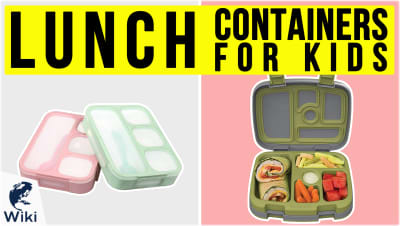6 Caring Organizations Working In Central And South America
Due in large part to centuries of colonialism and geopolitical conflict, the countries of Central and South America continue to face a number of pressing social challenges. Thankfully, organizations such as the ones included here are dedicated to honoring and empowering the many communities that make up these regions. They offer educational programs, health initiatives, and an array of resources to improve the lives of those most vulnerable. This video was made with Ezvid Wikimaker.
6 Groups Supporting Central and South American Communities
| Organization | Mission |
|---|---|
| Glasswing International | Address the root causes and consequences of violence and poverty through education and health programs that empower youth and communities, and strengthen public systems |
| Catalytic Communities | Improve the quality of life for all Rio de Janeiro residents by driving a creative, inclusive, and empowering community-led integration between the city's informal and formal communities, in which the city's favelas are recognized for their heritage status and their residents fully served as equal citizens |
| Global Brigades | Empower volunteers and under-resourced communities to resolve global health and economic disparities and inspire all involved to collaboratively work towards an equal world |
| NetHope | Empower committed organizations to change the world through the power of technology |
| The Healthy Newborn Network | Address the critical knowledge gaps in newborn health by bringing together partner organizations and individuals to share key resources, data, experiences, and lessons |
| The Tandana Foundation | Support the achievement of community goals and address global inequalities through caring intercultural relationships that embody mutual respect and responsibility |
Glasswing's Humanitarian Work
Some Issues Facing Central and South America
Reaching Out With The Tandana Foundation
In Depth
The nations of South and Central America house a vibrant diversity of human cultures and natural ecosystems. Yet they also face a wide array of challenges, including widespread poverty, political instability, and frequent natural disasters. In no particular order, here are six humanitarian groups offering transformative programs within this unique region.
Beginning our list at #1 is Glasswing International, an organization seeking to alleviate poverty and violence. Headquartered in New York but working throughout Central America and the Caribbean, this nonprofit undertakes a variety of educational, health, and revitalization efforts. Glasswing creates Community Schools that provide children with opportunities for enrichment and life skills development, including extracurricular programs and athletic opportunities, offering a safe environment to build creativity and confidence.
Glasswing mobilizes community members to take part in local initiatives, such as infrastructure improvements and educational programs. The group trains and certifies medical professionals in regions impacted by conflict and disasters, including specialized training in trauma and violence prevention. Other targeted programs include maternal and child health services, and Girls Clubs that build confidence while providing education in financial literacy and sexual health.
The group trains and certifies medical professionals in regions impacted by conflict and disasters, including specialized training in trauma and violence prevention.
Following up at #2 is Catalytic Communities, which works to elevate quality of life for residents of informal urban settlements. Inspired by the cultural vibrancy and innovation of the under-served favelas of Rio de Janeiro, this organization promotes these neighborhoods as a model of sustainable urbanization. The group highlights inhabitant-driven efforts at revitalization and improvement, and works to develop tools like Community Land Trusts to empower locals.
CatComm's community news site RioOnWatch offers a platform for favela residents to share perspectives on pervasive problems like hunger, violence, and lack of vital services; it also sheds light on creative solutions such as small-scale generation of solar power, or a local recycling cooperative. Other CatComm programs work to change public perception of favelas by enabling research visits, and providing guidelines for journalists reporting on these areas.
#3 in our overview is Global Brigades, a student-led nonprofit building prosperity and improving health, in impoverished regions of Latin America and beyond. This group's holistic model recruits local residents for leadership roles in projects to improve infrastructure and access to important services. Engagement begins by training community members as health workers, followed by installing hydration systems and creating small-scale financing options for development efforts.
Engagement begins by training community members as health workers, followed by installing hydration systems and creating small-scale financing options for development efforts.
The end goal of the Global Brigades model is to develop Empowered Communities, providing inhabitants with the knowledge and resources to drive ongoing development. Health education and access to sanitation improve regional well-being, while community banks and other microfinance programs help grow local economies. Global Brigades strives for sustainability, incorporating reforestation and other eco-friendly solutions into many of its projects.
Coming in at #4 is NetHope, a consortium of global nonprofits creating technological solutions for humanitarian work. With initiatives such as the Crisis Informatics Program for improved disaster response, or assistance in bringing digital financial services to under-served populations, the group uses information technology to help impoverished and displaced people worldwide. Through The Center for the Digital Nonprofit, NetHope helps tech companies and aid organizations collaborate to develop new strategies.
NetHope's Latin America and Caribbean Chapter assists with responding to crises and improving resilience in the region; initiatives include construction of communications infrastructure for migrants displaced by conflict in Venezuela, and Disaster Preparedness Training in countries at risk from hurricanes. The group's efforts have helped to restore connectivity and coordinate responses in the wake of disasters such as the Volcan de Fuego eruption in Guatemala.
The group's efforts have helped to restore connectivity and coordinate responses in the wake of disasters such as the Volcan de Fuego eruption in Guatemala.
#5 on our list is the Healthy Newborn Network, which shares information to reduce the incidence of preventable deaths in early infancy. HNN calls attention to leading causes of neonatal mortality, and spreads awareness about preventative measures such as umbilical cord antiseptics, and breastfeeding for optimal nutrition. Much of the organization's work focuses on challenges in low-resource areas, including advocacy for broader access to quality health care.
HNN's work to reduce newborn deaths in Latin America includes informational resources on epidemiology and surveillance for dangerous birth defects, as well as efforts to increase understanding of potentially life-saving interventions, like the Kangaroo Mother Care skin-to-skin contact approach. Educational materials on topics such as breastfeeding practices within Amazonian communities, or reduction of cesarean sections in Brazil, offer tools to help improve outcomes in the region.
We'll conclude with #6, The Tandana Foundation. Born out of Founding Director Anna Taft's experience teaching in Ecuador, this organization supports community improvement efforts led by local partners. The group assists with projects such as constructing water filtration systems, building schools, and restoring damaged ecosystems. Tandana also supports regional health care development, providing patient assistance after medical visits and helping with improvements to rural health centers.
The group assists with projects such as constructing water filtration systems, building schools, and restoring damaged ecosystems.
Tandana emphasizes local empowerment, with community members defining project goals; examples include educational support initiatives like school computer labs and scholarship programs, or the development of irrigation systems for agriculture. The organization works in Mali as well as Ecuador, where it aids with projects such as workforce development and building grain banks for food security. Tandana's programs include opportunities for volunteers interested in cultural exchange through service.
















